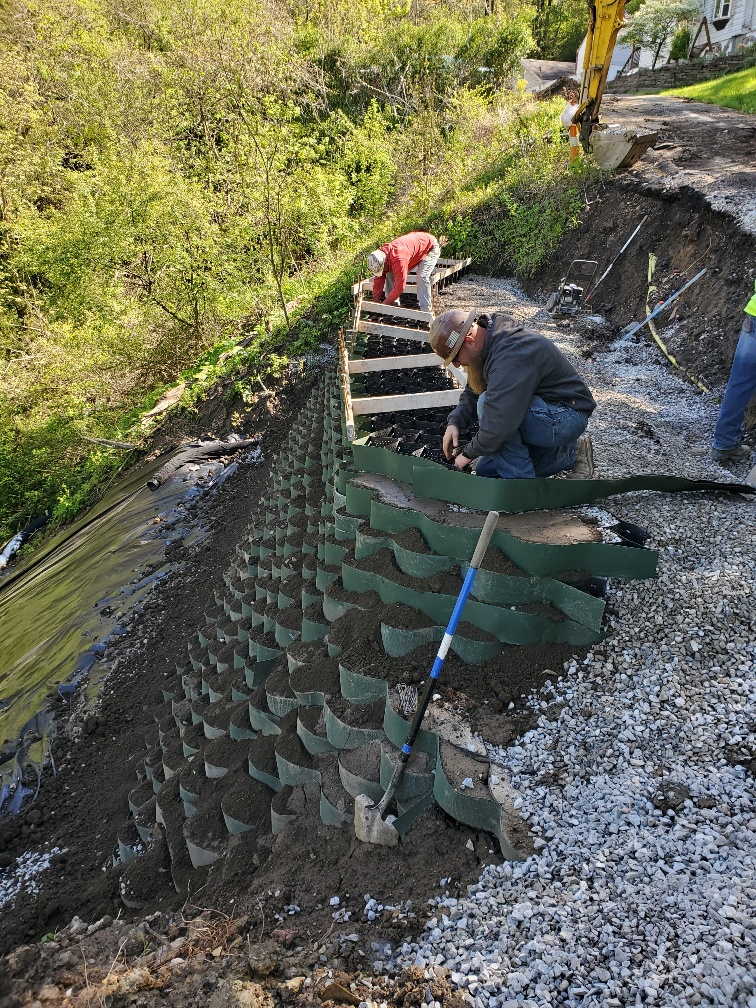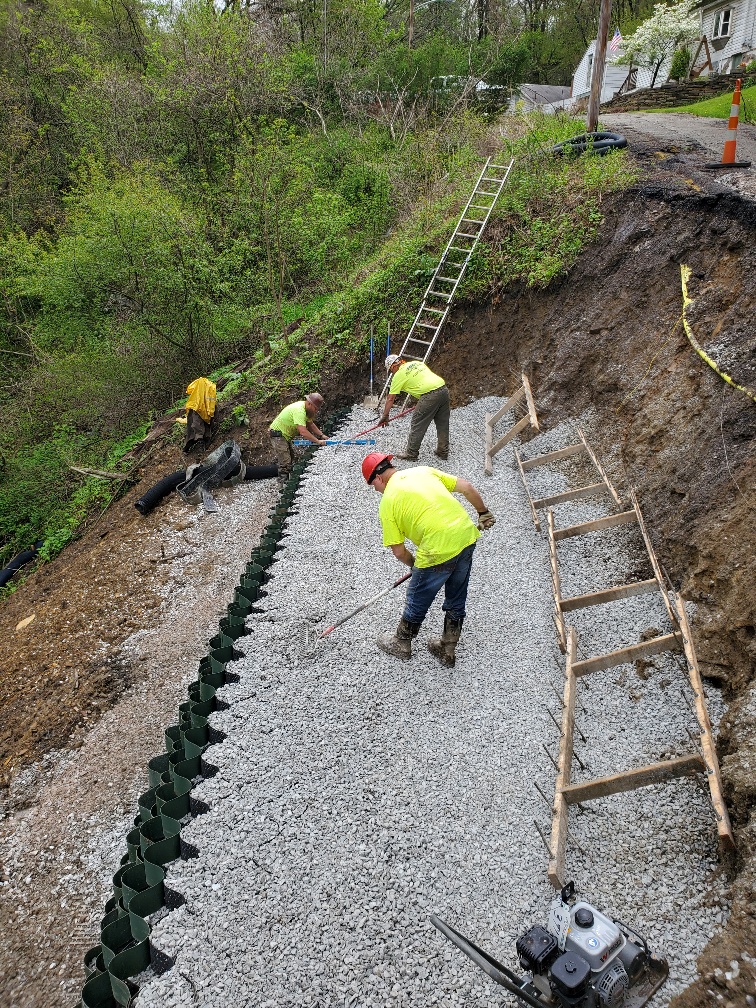Safe Roads and Healthy Streams: Detroit Avenue
Dirt, gravel and low volume roads (DGLVR) are an essential part of our transportation system and a major source of pollution. Water runs along roads, picks up pollution and delivers it to nearby streams or lakes.
The DGLVR grant program provides education, technical assistance and funding to improve roads and subsequently the landscapes they travel through. Every year, projects are funded that promote cost-effective, environmentally-sound maintenance practices to correct pollution and improve safety.
Southwestern Pennsylvania has the highest concentration of landslides in the state according to Department of Conservation and Natural Resources. Topography, rainfall and soil composition create unique conditions where landslides are increasingly common. Repairing landslides can be complicated, and their occurrence threatens streams and aquatic life.
In 2019, a landslide occurred on Detroit Avenue in a steep corner of Glassport Borough. This event contaminated nearby streams, created hazardous road conditions and impacted residents' access to services.
Detroit Avenue follows a steep slope above a tributary to the Monongahela River. As time passed, the combination of spring seeps and water flowing through the hillside led to a slope failure, ultimately compromising the integrity of the road.
Swipe below to see the transformation on Detroit Avenue.
Landslides and Pollution
Landslides are a source of sediment pollution. When a landslide occurs, it mobilizes large amounts of sediment and debris, which can be carried by water and deposited in nearby streams, rivers or other bodies of water. Sediment released from unstable slopes impacts aquatic environments and can increase maintenance demands when accumulated in pipes.
The Environmental Protection Agency lists sediment as the most common pollutant in rivers, streams, lakes and reservoirs, causing an estimated $16 billion in environmental damage annually.
Addressing the Cause of Landslides
ACCD awarded a Low Volume Road Grant to Glassport Borough in 2020 to repair the impacted area of Detroit Avenue.
Ensuring the repair of the landslide is important for maintaining the stability and functionality of the roadway. However, addressing underlying drainage issues is crucial to a successful project outcome. To prevent future damage, the project included additional drainage to prevent water on the street and hillside from deteriorating the slope.
Improvements to Detroit Avenue
The key to a successful slide repair is selecting the best material to rebuild and support the hillside. In this case, a vegetated geocell wall mimicked the natural vegetation, allowed infiltration and provided habitat for wildlife.
The wall is built in layers of stone and cells until it is flush with the roadway to create a solid platform for vegetation and stability for the slope. Layers contain soil-filled cells at the front of the wall and 2A clean stone at the back of the slope. The cells were seeded after installation with a stable slopes mix.


Photos: Crews build a vegetated geocell wall to stabilize a slope in Glassport Borough.
To accommodate additional drainage needs, the project included a drainage pipe behind the wall to capture spring seeps and prevent future slope failure. Once the wall was complete, additional stabilization at the toe of the slope ensures water can safely travel to the channel below. The final slope face included riprap to protect the slide repair as water infiltrates from the wet slope.